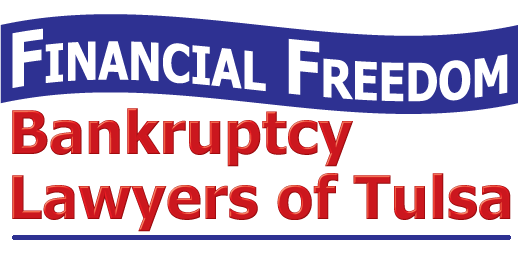Oklahoma Bankruptcy HelpHow Personal Loans Are Handled in Bankruptcy: What You Need to Know
 When facing overwhelming debt, many individuals consider bankruptcy as a means to regain financial stability. Personal loans, being a common form of unsecured debt, are significantly impacted by bankruptcy proceedings. Understanding how these loans are treated during bankruptcy is essential for making informed decisions.
When facing overwhelming debt, many individuals consider bankruptcy as a means to regain financial stability. Personal loans, being a common form of unsecured debt, are significantly impacted by bankruptcy proceedings. Understanding how these loans are treated during bankruptcy is essential for making informed decisions.
Filing for bankruptcy can have far-reaching consequences on personal loans and overall financial health. It is crucial to comprehend these implications to navigate the process effectively and minimize potential adverse effects.
An Oklahoma bankruptcy attorney is invaluable in navigating the complexities of bankruptcy. They provide expert guidance, ensuring that individuals understand their options and make the best decisions for their financial future.
Understanding Personal Loans
Personal loans are unsecured loans provided by banks, credit unions, or online lenders that can be used for various purposes such as consolidating debt, financing major purchases, or covering emergency expenses. Unlike secured loans, personal loans do not require collateral.
Personal loans offer flexibility and can be a lifeline during financial emergencies. However, they can also lead to significant debt if not managed properly. High-interest rates and repayment obligations can strain financial stability, making it challenging to meet other financial commitments.
Bankruptcy Basics in Oklahoma
In Oklahoma, individuals commonly file for Chapter 7 or Chapter 13 bankruptcy. Chapter 7 involves liquidating non-exempt assets to discharge unsecured debts, while Chapter 13 allows for debt reorganization and repayment plans over three to five years.
A Tulsa bankruptcy attorney guides individuals through the entire process, from filing the petition to representing them in court. They ensure all documentation is correctly prepared and submitted, and they provide valuable advice on protecting assets and managing debts.
How Chapter 7 Bankruptcy Affects Personal Loans
In Chapter 7 bankruptcy, personal loans are considered unsecured debts and are typically discharged, meaning the borrower is no longer legally obligated to repay them. However, this discharge comes at the cost of liquidating non-exempt assets to repay creditors.
How Chapter 13 Bankruptcy Affects Personal Loans
Chapter 13 bankruptcy involves reorganizing debts and creating a repayment plan based on the debtor’s income. Personal loans are included in this plan, and the borrower makes regular payments to a bankruptcy trustee, who distributes the funds to creditors. Unlike Chapter 7, debtors can keep their assets under Chapter 13.
How a Bankruptcy Attorney Helps Manage Personal Loans
A Tulsa bankruptcy attorney in Oklahoma plays a crucial role in managing personal loans during bankruptcy. They help determine which bankruptcy chapter is most suitable, prepare the necessary documentation, and represent the debtor’s interests in court. Their expertise ensures that personal loans are handled efficiently and in accordance with the law.
Consequences of Bankruptcy for Personal Loans
Filing for bankruptcy can have several consequences for personal loans. While discharge in Chapter 7 eliminates the obligation to repay, it also negatively impacts credit scores and can make obtaining future credit more challenging. In Oklahoma Chapter 13 bankruptcy, the repayment plan can provide relief, but it requires strict adherence to the payment schedule.
An Oklahoma bankruptcy attorney can help mitigate the consequences of bankruptcy on personal loans by offering strategic advice on debt management and credit rebuilding. They can negotiate with creditors, protect the debtor’s rights, and provide a roadmap for financial recovery post-bankruptcy.
How to Manage Personal Loans in Bankruptcy
The following are some tips on how to manage personal loans in the context of the bankruptcy process:
- Maintain Accurate Records: Keep detailed records of all loan agreements and communications with lenders.
- Stay Current on Payments: If possible, continue making payments on personal loans until the bankruptcy process is finalized.
- Communicate with Lenders: Inform lenders about your bankruptcy filing and any changes in your financial situation.
- Avoid New Debt: Refrain from taking on new debt during bankruptcy proceedings.
Professional legal advice is essential for effectively managing personal loans during bankruptcy. An Oklahoma bankruptcy attorney provides the necessary expertise to navigate the process, protect assets, and ensure compliance with legal requirements.
Consultation With Tulsa Bankruptcy Attorney Essential
Understanding how personal loans are handled in bankruptcy is crucial for making informed decisions and minimizing financial stress. Knowledge of the implications and processes involved can help individuals navigate bankruptcy more effectively. A Tulsa bankruptcy attorney can even represent you during any court hearings throughout the bankruptcy process. They can also assist in negotiating with creditors.
Seeking professional advice from an Oklahoma bankruptcy attorney is vital when navigating this legal process. Their expertise and guidance can make a significant difference in the outcome of the process and the debtor’s financial future. This includes ensuring there are not any consequential mistakes and inaccuracies in the documents filed with the bankruptcy court in Tulsa, Oklahoma.
Talk to a Debtline Law Oklahoma Bankruptcy Attorney
If you are considering bankruptcy or have questions about how personal loans are handled, contact the Debtline Law Office at (918) 786-9600. Our skilled Oklahoma bankruptcy attorneys are ready to provide personalized advice and representation to help you navigate the complexities of bankruptcy and achieve a fresh financial start.




